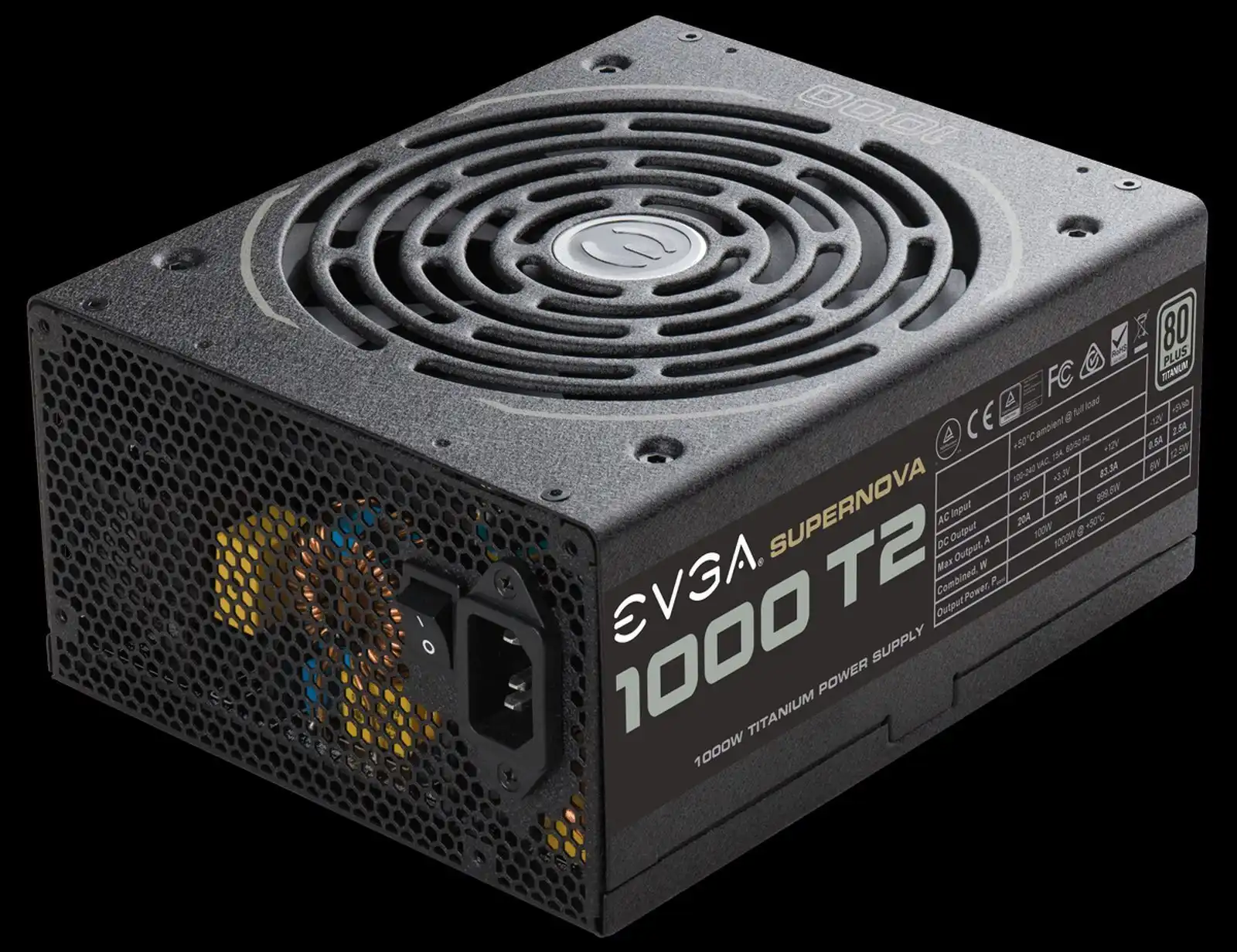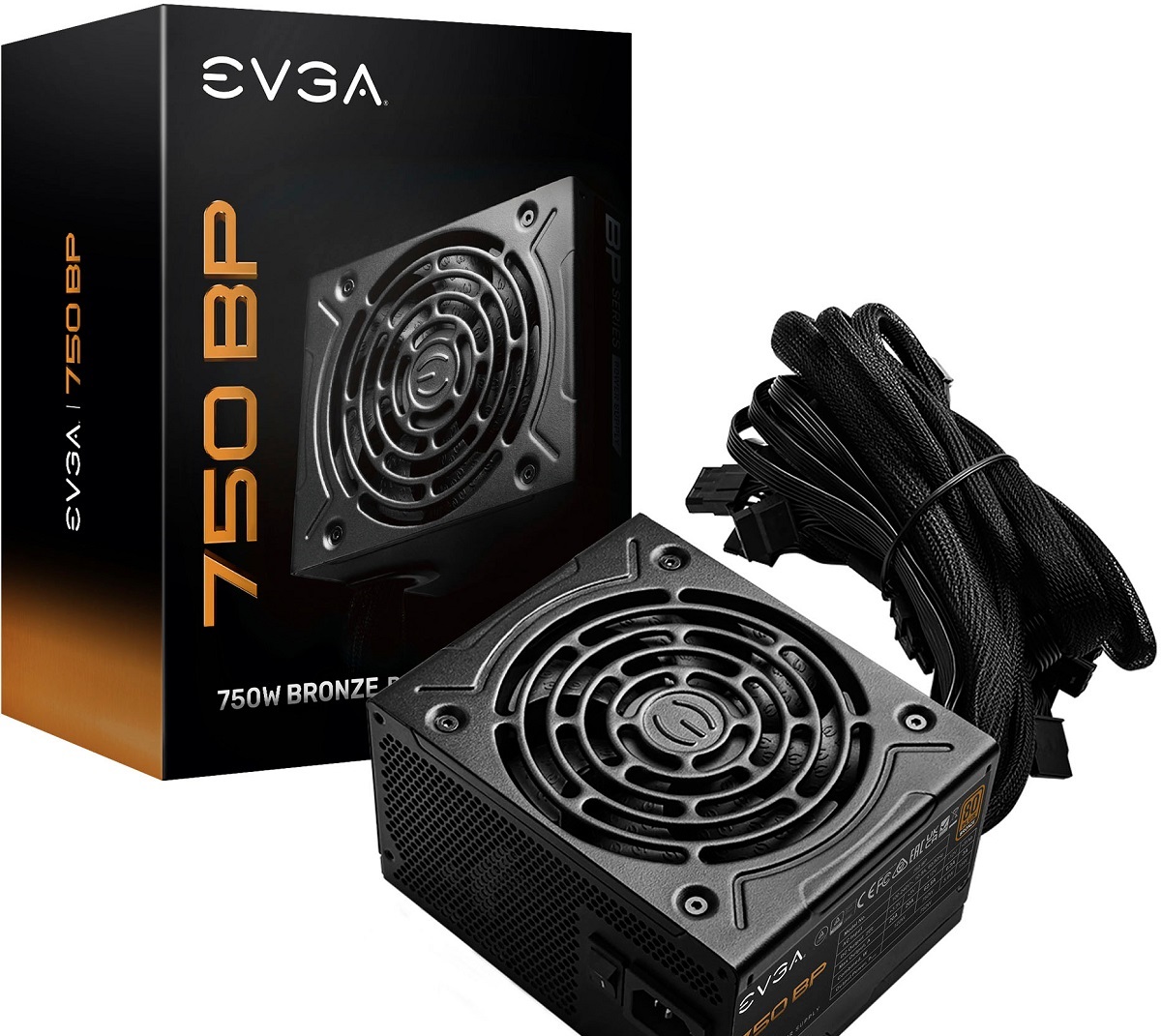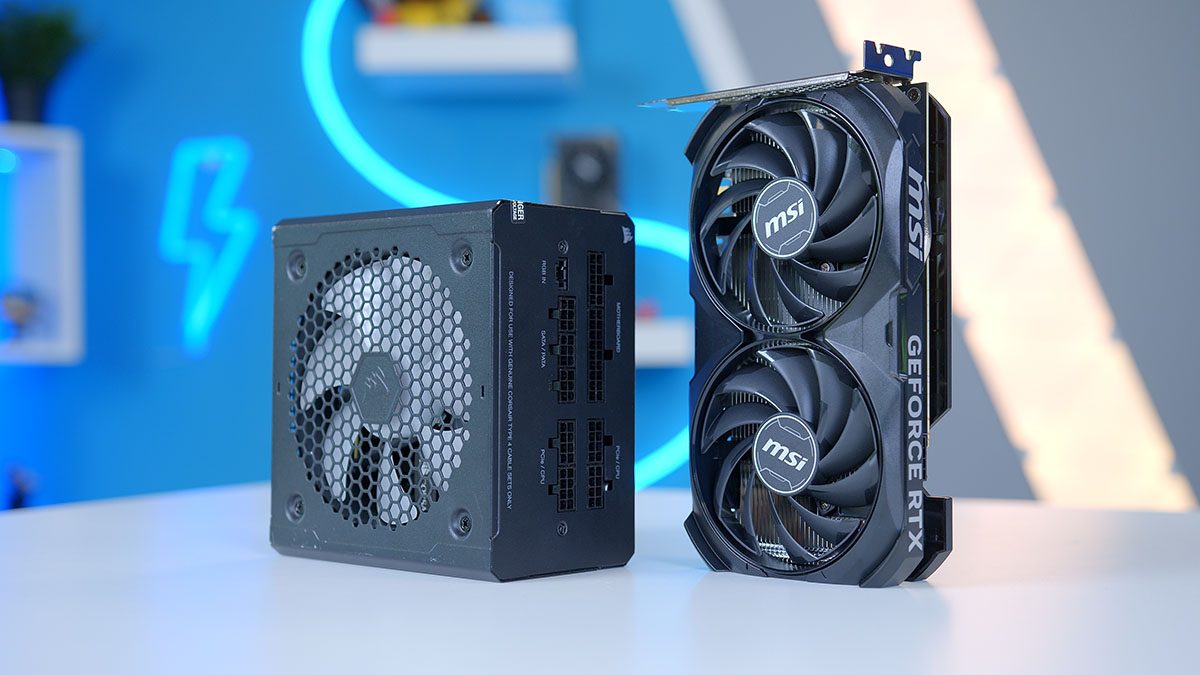Introduction
When it comes to building or upgrading your computer, one of the most important considerations is the power supply unit (PSU). The PSU is responsible for supplying the necessary power to all of your computer’s components, ensuring they function properly and efficiently. However, choosing the right wattage PSU can be a daunting task for many users.
The wattage of a PSU refers to its maximum power output, measured in watts. It determines how much power your PSU can deliver to your computer’s components. Having a PSU with insufficient wattage can result in system instability, crashes, or even damage to your hardware. On the other hand, having a PSU with excessive wattage can be a waste of money and energy efficiency.
In this article, we will explore the factors to consider when determining the appropriate wattage for your PSU. We will also provide insights on how to calculate the power requirements for your PC and offer recommendations for different types of systems.
Whether you’re a casual user, a gamer, or a professional, understanding how many watts your PSU should be is crucial for achieving optimal performance and ensuring the longevity of your computer.
Power Consumption of Different Components
Before determining the wattage of your PSU, it’s essential to understand the power consumption of different components in your computer. Each component requires a certain amount of power to operate efficiently. Here’s a breakdown of the typical power consumption of key components:
- Processor (CPU): The CPU is often the most power-hungry component in a computer, especially if you have a high-end processor. Depending on the model, CPUs can consume anywhere from 65 to 250 watts.
- Graphics Card (GPU): Graphics cards play a crucial role in gaming and graphic-intensive tasks. They are known for their high power consumption. Entry-level GPUs can consume around 75 watts, while top-tier gaming GPUs can require up to 300 watts or more.
- Memory (RAM): RAM modules have a minimal power requirement, typically ranging from 1 to 3 watts per module.
- Storage Drives: Solid-state drives (SSDs) consume very little power, usually less than 2 watts. Hard disk drives (HDDs) can consume around 6 to 10 watts, depending on the speed and capacity.
- Motherboard: The power consumption of a motherboard varies greatly depending on its features and components. On average, a motherboard can consume approximately 20 to 50 watts.
- Fans and Cooling: Fans and cooling systems play a vital role in keeping your components at optimal temperatures. The power consumption of fans typically ranges from 1 to 5 watts per fan.
It’s important to note that these power consumption figures are approximate and can vary depending on the specific make and model of your components. It’s always a good idea to check the manufacturer’s specifications for accurate power consumption information.
Now that you have an understanding of the power consumption of different components in your computer, let’s move on to the factors you should consider when determining the wattage of your PSU.
Factors to Consider When Determining PSU Wattage
Choosing the appropriate wattage for your PSU involves considering several factors to ensure sufficient power for your computer’s components. Here are the key factors to keep in mind:
- System Configuration: The overall configuration of your computer plays a significant role in determining the PSU wattage you need. Factors such as the number of components, their power consumption, and whether you overclock your CPU or GPU can impact the total power requirement.
- Future Upgrades: If you plan on upgrading your computer in the near future, it’s a good idea to consider potential power requirements. Sufficient wattage headroom ensures you won’t need to replace your PSU when you add more power-hungry components.
- Efficiency Rating: PSUs come with different efficiency ratings, such as 80 Plus Bronze, 80 Plus Gold, or 80 Plus Platinum. Higher efficiency ratings mean less energy waste and can help save on electricity bills. However, keep in mind that higher-rated PSUs can come at a higher cost.
- Budget Constraints: Your budget will also play a role in determining the wattage of your PSU. While it’s important to have sufficient power, it’s equally important to find the right balance between cost and performance.
- Special Requirements: Certain components may have specific power requirements. For example, if you have a multi-GPU setup or use power-hungry peripherals, such as high-powered USB devices or external hard drives, you’ll need to factor in their power consumption as well.
Considering these factors will help you make an informed decision when determining the wattage of your PSU. However, it’s recommended to consult PSU sizing calculators or seek expert advice if you’re unsure about your specific requirements.
Next, let’s learn how to calculate the power requirements for your PC to determine the appropriate wattage for your PSU.
How to Calculate Power Requirements for Your PC
Calculating the power requirements for your PC involves estimating the power consumption of each component and adding them together to determine the minimum wattage your PSU should have. Here’s a step-by-step guide:
- List Your Components: Make a comprehensive list of all the components in your computer, including the CPU, GPU, RAM, storage drives, motherboard, fans, and any other peripherals.
- Find Power Consumption Figures: Look up the power consumption figures for each component. You can find this information in the product specifications provided by the manufacturer.
- Calculate Component Power: Multiply the power consumption figure of each component by the number of that component in your system. For example, if you have two RAM modules that consume 3 watts each, the total power consumption for RAM would be 6 watts.
- Add Up the Power: Sum up the power consumption figures for all components to get the total power requirement for your PC.
- Account for Efficiency: To account for efficiency, multiply the total power requirement by a safety margin. A 10-20% margin is usually sufficient for most systems.
- Determine PSU Wattage: Finally, choose a PSU with a wattage that is equal to or greater than the calculated total power requirement.
It’s important to note that the power consumption figures provided by manufacturers are often maximum values. In real-world scenarios, your components may not always operate at their maximum power consumption. However, it’s better to have a PSU with some headroom to ensure stability and efficiency.
By following these steps, you can estimate the power requirements for your PC and select a PSU with the appropriate wattage to meet your needs.
Next, let’s explore the recommended wattage for different types of PCs to help you make an informed decision.
Recommended Wattage for Different Types of PCs
The recommended wattage for a PC depends on its intended use and the components it houses. Here are general guidelines for different types of PCs:
- Basic Office/Home PC: For a basic PC used for office tasks, web browsing, and light multimedia consumption, a PSU with a wattage of 300-400 watts should be sufficient. This assumes a standard CPU, integrated graphics, and minimal peripherals.
- Gaming PC: Gaming PCs typically require more power due to high-performance graphics cards and powerful CPUs. A gaming PC with a mid-range GPU and CPU would benefit from a PSU with a wattage of 500-600 watts. For high-end gaming PCs with multiple GPUs, it’s recommended to opt for a PSU with a wattage of 750 watts or higher.
- Workstation PC: Workstation PCs, often used for professional applications like video editing or 3D rendering, require a substantial amount of power. Depending on the components and workload, a PSU with a wattage of 600-800 watts or more would be appropriate to handle the demanding tasks.
- Small Form Factor (SFF) PC: SFF PCs come in compact sizes and have limited space for components. These PCs often use low-power components and integrated graphics. A PSU with a wattage of 200-300 watts should be sufficient for most SFF builds.
- High-End Overclocking PC: Enthusiast users who overclock their CPUs and GPUs to achieve maximum performance need a PSU with ample power reserves. A wattage of 800-1000 watts or higher is recommended to handle the increased power demands and ensure stability during heavy overclocking.
These wattage recommendations serve as a starting point and may vary depending on specific component choices, overclocking, and future upgrades. It’s always a good idea to consider potential power requirements and choose a PSU with some headroom for future expansion.
Now that you have an idea of the recommended wattage for different types of PCs, let’s move on to discuss the importance of choosing the right wattage PSU.
Importance of Choosing the Right Wattage PSU
The importance of choosing the right wattage PSU for your computer cannot be overstated. Here are a few key reasons why it is essential:
- Stability and Reliability: A PSU with insufficient wattage may struggle to deliver enough power to your components, resulting in system instability. This can lead to crashes, freezes, and random shutdowns. On the other hand, an adequately sized PSU ensures a stable and reliable power supply, minimizing the risk of damage to your hardware.
- Component Longevity: Insufficient power supply can put excessive strain on your components, potentially compromising their lifespan. Underpowered components may run hotter and experience higher levels of stress, leading to premature wear and failure. Choosing the right wattage PSU helps protect your investment in expensive hardware and extends the lifespan of your components.
- Future-Proofing: Selecting a PSU with extra headroom can provide flexibility for future upgrades. As technology advances and newer, more power-hungry components enter the market, having a PSU with a higher wattage can accommodate these upgrades without requiring you to replace your power supply.
- Efficiency and Energy Savings: PSUs operate most efficiently when they are under moderate load. Running a PSU at a high load can decrease its efficiency, resulting in wasted energy and increased electricity costs. By choosing the right wattage PSU, you can ensure that it operates in its optimal efficiency range, saving energy and reducing your carbon footprint.
- Peace of Mind: Having a properly sized PSU gives you peace of mind, knowing that your computer is receiving a stable and adequate power supply. This allows you to focus on your work, gaming, or other activities without worrying about power-related issues and potential system failures.
Considering these factors and choosing the right wattage PSU is crucial for the overall performance, longevity, and stability of your computer system.
Now that we’ve discussed the importance of choosing the right PSU wattage, let’s move on to some tips for selecting the appropriate wattage for your specific needs.
Tips for Selecting the Right PSU Wattage
Selecting the right wattage PSU for your computer can be simplified by following these helpful tips:
- Calculate Your Power Requirements: Use PSU calculators or manually calculate your power requirements by adding up the power consumption figures of your components. This will give you a baseline wattage requirement to start with.
- Consider Future Upgrades: If you plan on upgrading your computer in the near future, account for potential power requirements. Choosing a PSU with some headroom can save you from having to purchase a new PSU when you add more power-hungry components.
- Research Component Power Consumption: Research and compare the power consumption figures of the components you are considering. Opt for components that offer good performance while consuming a reasonable amount of power. This will help keep your overall power requirements in check.
- Check Efficiency Ratings: Consider the efficiency ratings of PSUs. Higher-rated PSUs are generally more efficient, leading to reduced energy waste and lower electricity bills. However, keep in mind that higher-rated PSUs may come at a higher cost.
- Read Reviews and Recommendations: Look for reviews and recommendations from reputable sources or computer enthusiasts with similar setups to yours. Their experiences and insights can help guide you in choosing the right wattage PSU for your specific needs.
- Budget Appropriately: Take into account your budget when selecting a PSU. It’s important to find a balance between wattage and cost. Avoid overspending on excessively high wattage PSUs if your system doesn’t require it, but also avoid compromising on wattage for cost-saving purposes.
Considering these tips will help you make an informed decision and select the right wattage PSU that meets your specific requirements.
Now that we’ve explored the tips for selecting the appropriate PSU wattage, let’s summarize the key points discussed in this article.
Conclusion
Choosing the right wattage power supply unit (PSU) for your computer is crucial for optimal performance, stability, and longevity. By understanding the power consumption of different components, considering various factors, and calculating your power requirements, you can determine the appropriate wattage for your PSU.
Remember to take into account your specific needs, such as gaming, office work, workstations, or small form factor PCs, as these factors can impact the recommended wattage. Additionally, considering potential future upgrades and efficiency ratings can help future-proof your system and save on energy costs.
Researching and comparing component power consumption figures, reading reviews, and seeking expert recommendations can provide valuable insights and guidance in selecting the right PSU wattage for your computer system.
By choosing the proper wattage PSU, you can ensure stability, reliability, component longevity, and energy efficiency. This will give you peace of mind and allow you to fully enjoy the performance and capabilities of your computer.
So, whether you’re building a new PC or upgrading your current system, remember to carefully consider the wattage requirements of your components and choose a PSU with the appropriate wattage for a hassle-free and optimized computing experience.

























